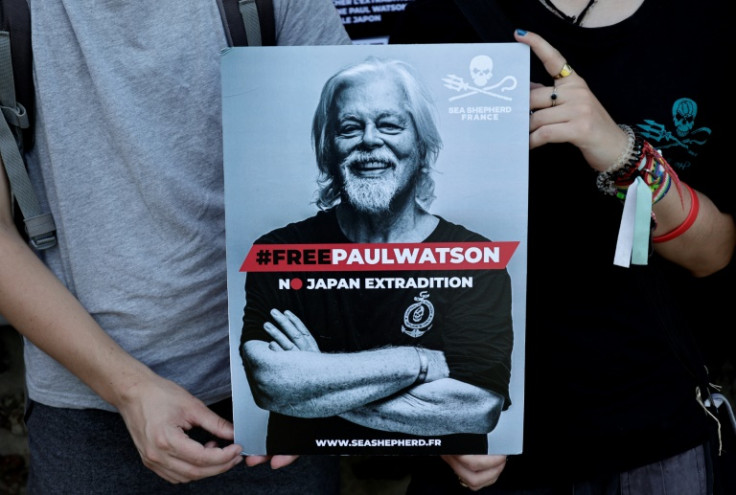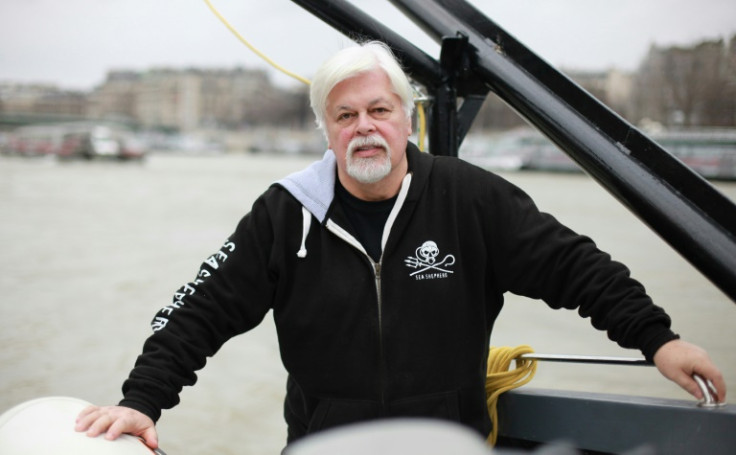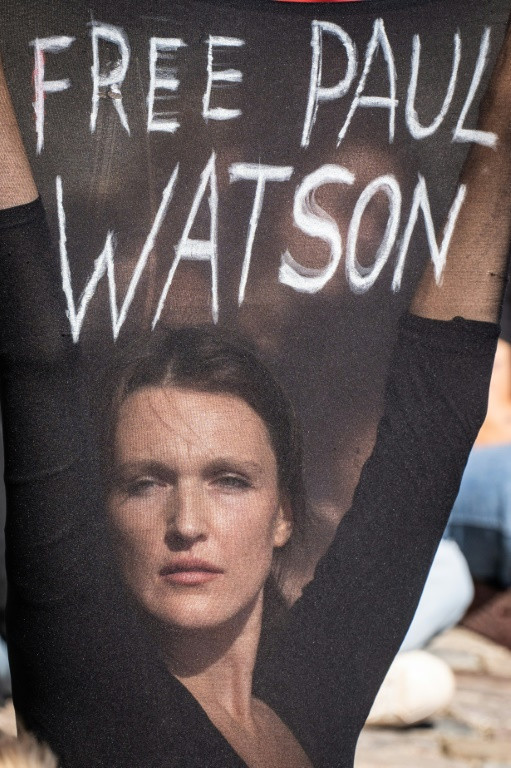Anti-whaling Activist Watson Set To Remain Behind Bars In Greenland

A Greenland court decides Wednesday whether to keep US-Canadian anti-whaling activist Paul Watson in custody pending a decision on his extradition to Japan, where he is wanted over an altercation with whalers.
Lawyers for the 73-year-old campaigner expect the court in Nuuk, the capital of the Danish autonomous territory, to extend his custody as a legal review of the extradition request drags on.
Watson was detained in Nuuk in July on a 2012 Japanese arrest warrant, which accuses him of causing damage to one of its whaling ships in the Antarctic in 2010 and injuring a whaler.
Watson, who featured in the reality TV series "Whale Wars", founded Sea Shepherd and the Captain Paul Watson Foundation (CPWF) and is known for radical tactics including confrontations with whaling ships at sea.
He was arrested on July 21 when his ship, the John Paul DeJoria, docked to refuel in Nuuk on its way to "intercept" a new Japanese whaling factory vessel in the North Pacific, according to the CPWF.
Japan accuses Watson of injuring a Japanese crew member with a stink bomb intended to disrupt the whalers' activities.
His lawyers insist he is innocent and say they have video footage proving the crew member was not on deck when the stink bomb was thrown, but the Nuuk court refused to view it at the last custody hearing on August 15.
"We expect that the court will extend his detention because we were not allowed to present our evidence, and we expect not to be allowed this time as well," one of Watson's lawyers, Jonas Christoffersen, told AFP.
"The judge argues that it's not his role to study this evidence," he said.
The custody hearings are solely about Watson's detention, and not the question of his guilt nor the extradition request.
The decision about his extradition will be taken independently.
Greenland police must first decide whether there is a basis for extradition, after which the Danish justice ministry will decide whether to proceed with an extradition.
No date has been announced for those decisions.
The justice ministry told AFP the review of the extradition request was "an ongoing process".
"It is a process with several legal steps, and the Ministry of Justice is currently awaiting the legal assessment from the Greenland police and the Director of Public Prosecutions," it told AFP in an email.
French President Emmanuel Macron's office has called for Watson's release, as have some 100,000 people who have signed a global petition.
Yet Watson is a controversial figure among environmentalists because of his confrontational approach, which he calls "aggressive non-violence".
He told AFP in an interview at the Nuuk prison in late August that he is continuing his fight from his cell.
"If they think it prevents our opposition, I've just changed ship. My ship right now is Prison Nuuk," he said.
He said Japan is using him "to set an example that you don't mess around with their whaling."
One of his strongest supporters, the head of Sea Shepherd's French branch, Lamya Essemlali, told AFP that while Watson's arrest was "very unfair", it had provided an opportunity to shed light on Japan's whaling practices.
"The bright side of it is that there has never been as much (of a) spotlight on Japanese whaling."
"This is what we've been doing for so long, to expose what Japan is doing in Antarctica, how Japan is violating the global moratorium on whaling," she said.
Watson has one ship stationed in each hemisphere, ready to jump into action if one of the countries that still allow whaling -- Iceland, Japan and Norway -- were to resume the hunt.


© Copyright AFP 2024. All rights reserved.





















